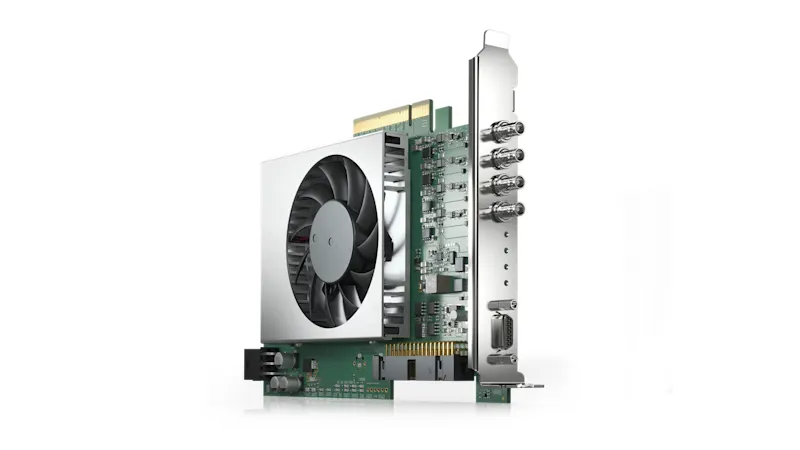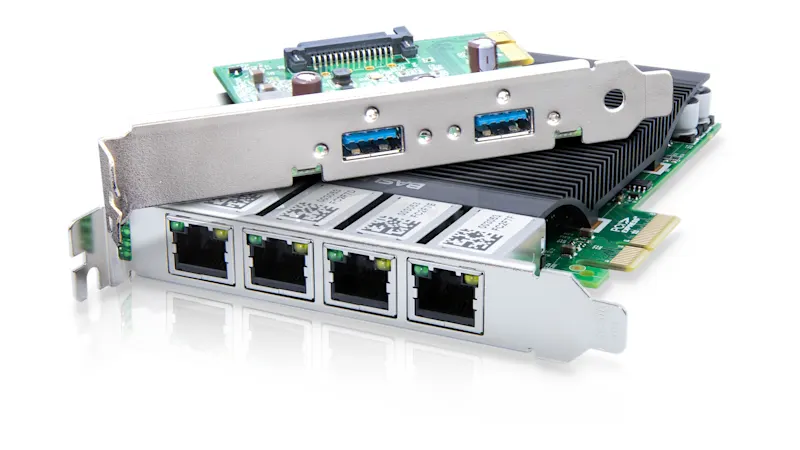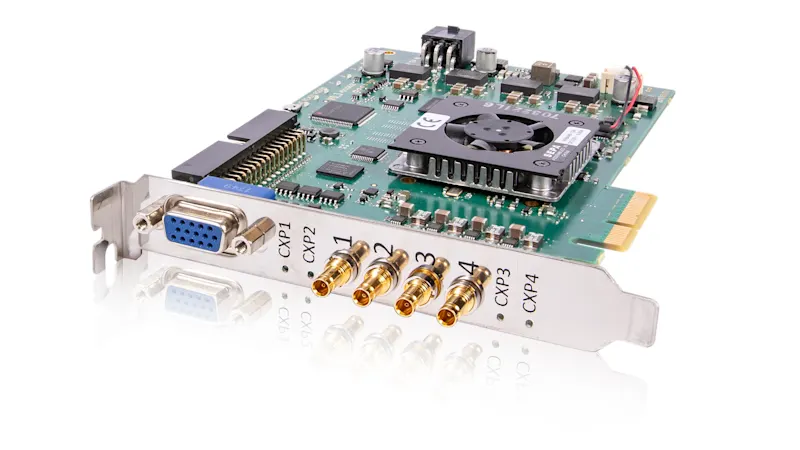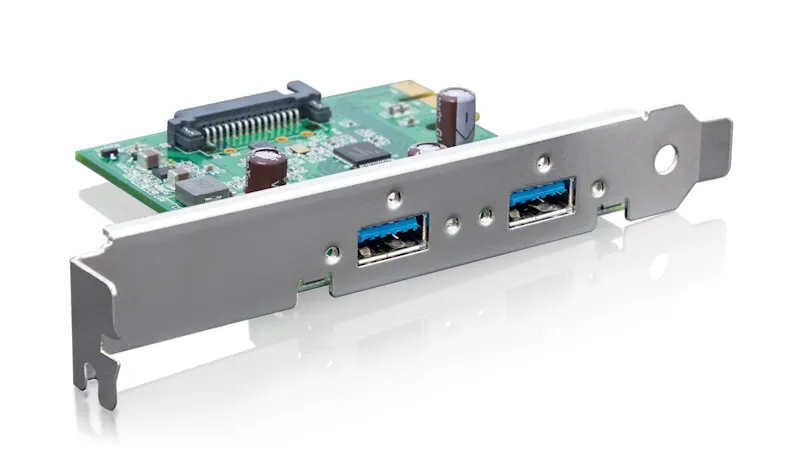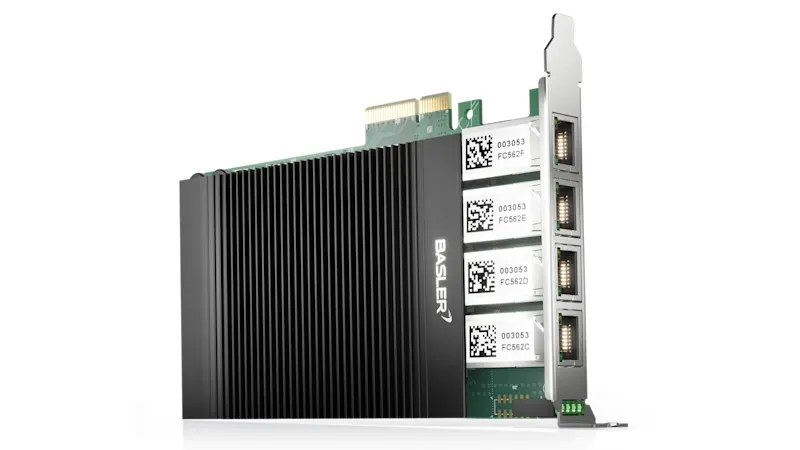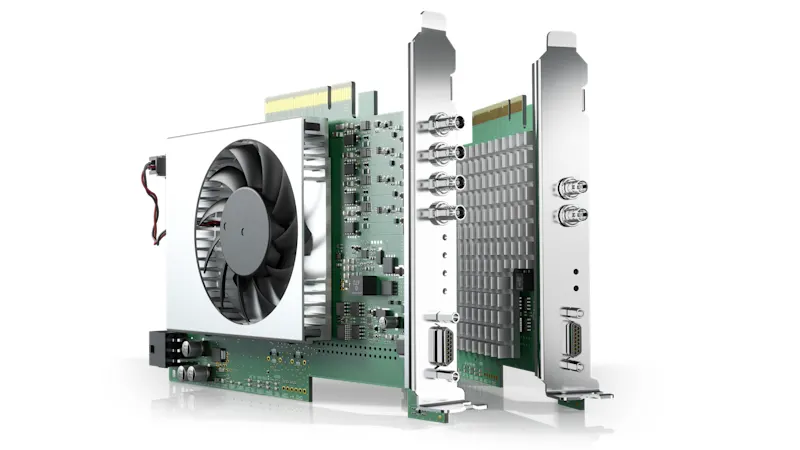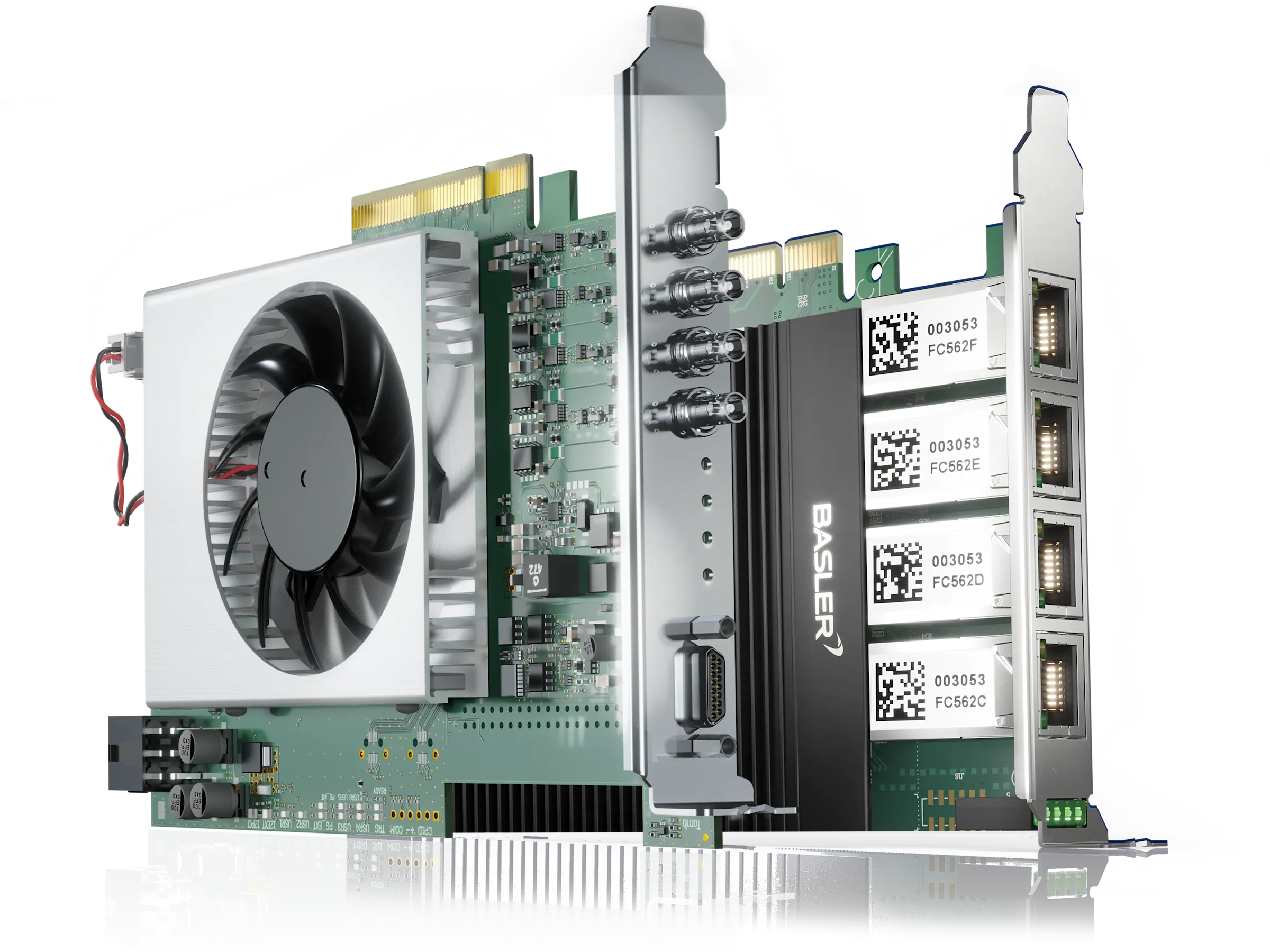
Acquisition Cards
For your stable vision application
For your stable vision application
Easy installation of your vision system: save time with a plug-and-play PC card or with a programmable frame grabber for project-specific requirements. Thanks to different bandwidths and interfaces, the cards are suitable for multi-camera systems and industrial applications.
